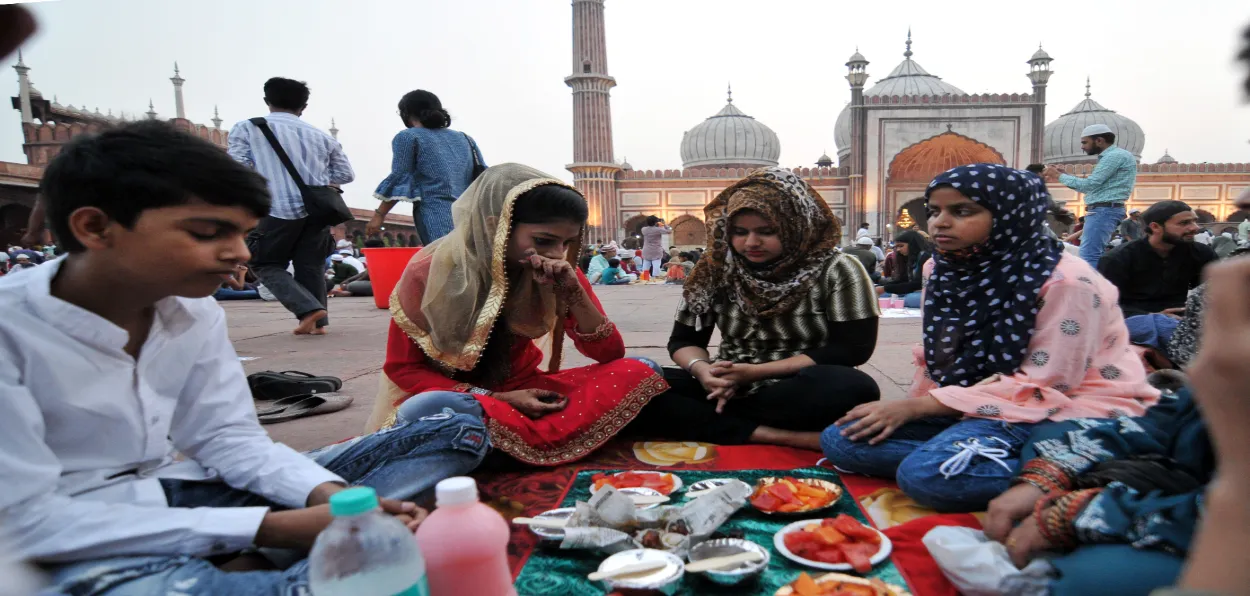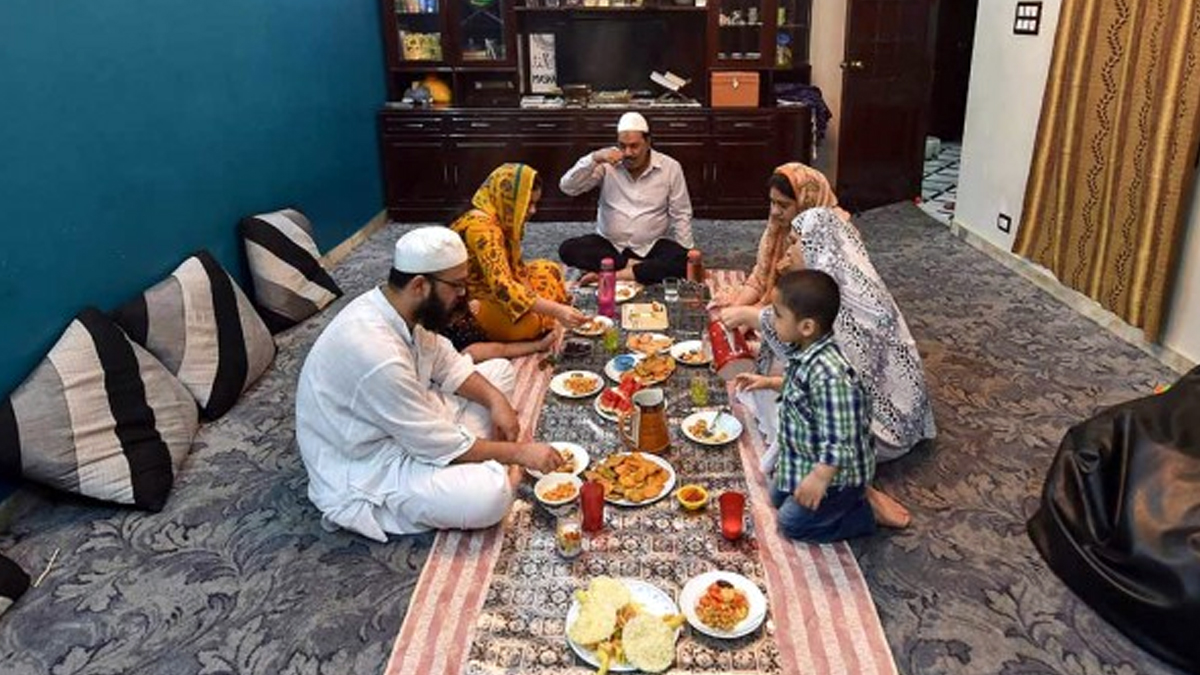
Amir Suhail Wani
As the holy month of Ramazan has begun, people are hoping to derive maximum spiritual and physical benefits from it. However, we need to ask ourselves is it enough to fast, avoid eating and drinking. Is physical refrain sufficient to experience the benefits of Ramzan? How can a Muslim make our Ramzan a unique experience of piety and religiosity?
God instructs in the Quran that “O you who have believed, decreed upon you is fasting as it was decreed upon those before you that you may become righteous”. This verse explains that the purpose of Ramzan is to cultivate righteousness, piety, and God-Consciousness. The practices of fasting are only external gestures, the real message of Ramzan is the internal transformation of soul, psyche, and mind.
During this month believers realise that they are being watched over by God and they can’t commit sins or wrongs or misdeeds. Islam wants this feeling to last for the whole year and to shape the Muslim psyche in such a way that keeps them away from wrongdoing; no Muslim harms another person and no Muslim becomes negligent of God.
Ramzan makes us feel the depravity and sufferings of others. Fasting makes us empathize with millions of human beings who can’t afford two square meals a day and have to sleep empty stomach. This feeling makes Muslims help the poor and needy, the destitute and the deprived, the less privileged and the hungry, irrespective of caste, creed, religion, and region. This month of Ramzan cultivates in us a sense of feeding the hungry, to doing whatever we can do to mitigate the sufferings and shortages of our fellow humans. The children living in slums, the workers going through hours of arduous work and not having enough to feed themselves and their families are found throughout our nation.
If Ramzan doesn’t wake up in us the spirit to feel the suffering of these fellow humans, it has failed in its mission. God doesn’t want empty fasting from us unless it refines our character and springs sympathy for fellow humans. The purpose of 30-day training is also meant to restrain our desires, passions, and animal traits.
 A family eating their pre-dawn meal, Sehri, during Ramzan
A family eating their pre-dawn meal, Sehri, during Ramzan
Ramzan is also the month of increased vigils, worship, prayers, and duas. One tries to connect with God in as many ways as possible. This presence before God increases man’s sense of accountability and inspires him to avoid deeds and acts that are against the spirit of humanity. The spiritual aura created in the month of Ramzan inspires one and all to participate in social work and pro-human activities.
The basic problem with our understanding of Ramzan is that many among us take it as the time of feasting instead of fasting. While we observe the scruples of Shariah during the day, our Suhoor and iftars are the singular events of gluttony, hyper-consumerism, and show-off. Lavish iftar parties being thrown are very much antithetical to the spirit of Ramzan, inverting its purpose and creating an opposite binary. These practices need to be jettisoned to make Ramzan the month of blessings, healing, and balance. Our excess at Suhoor and iftar not only undo the physical and medical benefits of fasting but also undo its spiritual merits.
It is often seen that in the month of Ramzan in South Asia, especially in the Muslim majority countries, the prices of essentials rise, and shortage and profiteering are rampant. The price rise on essential vegetables and fruits, etc makes these essentials out of the reach of lower-middle income groups of people. Even the governments struggle to control the skyrocketing prices.
Another sad thing happening in Ramazan is the huge amount of food wasted creating tendencies that led to economic bottlenecking, food insecurity, and inflation. The food wastage is caused by the mindset of diners in expecting nothing less than a tantalizing feast-like iftar that eventually goes uneaten. Around 25-50% of the food prepared in the Arab world during Ramzan is wasted, according to the United Nations Environment Programme’s ‘The State of Food Waste in West Asia’ 2021.
Indian Muslims need to take special care of a few things – their Ramzan must not disturb their compatriots. Ramzan is the month of discipline, cleanliness, and sympathy.
Muslims must not indulge in spendthrift, lavish eating, and polluting their environs. This defeats the purpose of Ramzan and instead leads us to sin and criminality.
Loudspeakers, wherever they are allowed, must be used judiciously, respecting the rights and liberties of others.
While Ramzan is the month of God-consciousness, it must also make us sensitive to our fellow humans. We must spread the message of love, and peace not only among our fellow Muslims but all the people of our nation.
ALSO READ: CAA implemented for granting citizenship to minorities from Pak-Af-B'desh
Ramzan must inspire us to love people, to shoulder their burden, to share their joy and sorrow, and be responsible citizens of our nation. That is the best way of celebrating Ramzan.
